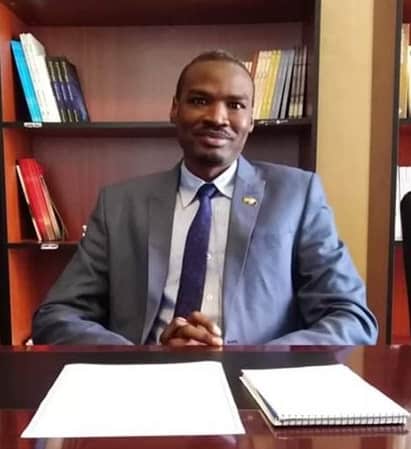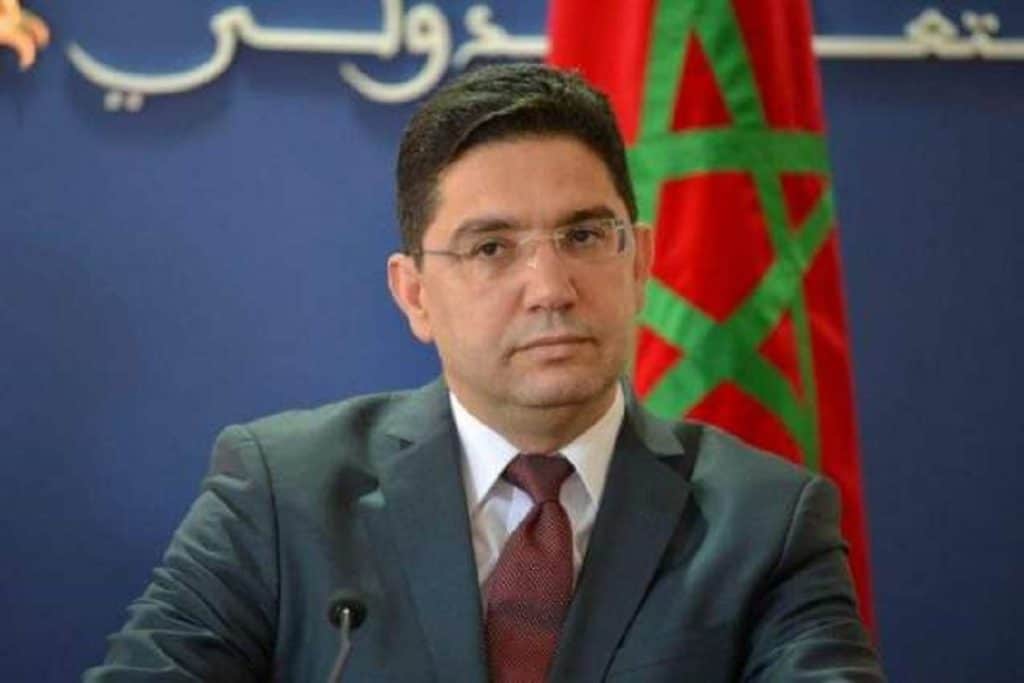By Denis Korkodinov – Interview with Abbas Mohammad Saleh
Tensions in the Greater Middle East threaten the security and stability of countries around the world, including Morocco. In this regard, the Moroccan Central Bureau of Judicial Investigation pays particular attention to the development of the Iran-US conflict, as well as the terrorist activity of the Islamic State after the liquidation of Abu Bakr al-Baghdadi.
The situation is complicated by the fact that the kingdom, despite the declared neutrality, is extremely vulnerable to regional challenges and threats, and therefore forced to respond to them. At the same time, Washington, Moscow and Tehran have a significant influence on Morocco, trying to draw the kingdom into the confrontation between various force groups in the international arena. However, Morocco is currently showing signs of stability. But the situation could change dramatically in the very near future, including under the influence of a number of terrorist factors related to the resurgence of ISIS.
Speaking specifically for World Geostrategic Insights, we talked about this with Abbas Mohammad Saleh, African researcher and analyst.

1. According to the White House, the daughter and senior adviser to US President Donald Trump Ivanka intends to visit Morocco in the coming days. The purpose of this visit of Ivanka Trump is to implement her author’s program for the economic development of women in Morocco. Does this prove that Washington is thus striving to step up its participation in West Africa amid Moscow’s announcement of its own projects in Africa, including Morocco, during the recent pan-African Russia-Africa summit? Will Ivanka Trump’s visit be a pretext for a conflict of interest between Moscow and Washington? What are the political implications of Ivanka Trump’s visit to Morocco?
– The visit of the daughter of US President Donald Trump Ivanka is considered a normal visit and takes place as part of Washington’s public diplomacy in order to strengthen support for the adoption of some American public programs at the local level in Morocco. This visit is not considered in the context of the confrontation of the White House administration with other international players, including Russia.
Of course, Moscow has special plans to develop its cooperation with the African continent, including Morocco, but the goals of this cooperation are fundamentally different from the plan that Ivanka Trump wants to implement. In the end, the daughter of the American leader is an exclusively utilitarian project aimed at developing gender equality, while Russia’s projects are much more extensive and are focused mainly on the military-industrial cluster of African countries. Therefore, in this regard, Moscow and Washington do not compete in Morocco, but rather complement each other.
This is a common practice, since Marakesh is of great interest to many world powers, being the doors of West Africa. Because of this, the Moroccan visit of Ivanka Trump cannot cause any political consequences. She has a private initiative, which does not pursue the goal of making any political decisions that could affect the positions of Russia or other countries of the world.
2. Many international security experts are almost unanimous that there is a huge risk of a terrorist threat in the Sahel region of Morocco. In particular, the head of the Central Bureau of Judicial Investigation of Morocco, Abdelhak Hiame, recently stated that the region is a hotbed of terrorism. This information is especially relevant after the liquidation of the leader of the “Islamic state” Abu Bakr Al-Baghdadi, whose followers have announced the threat of terrorist attacks around the world. In particular, information has recently been widely circulated in the international media space that there is now an extremely high risk associated with the continuation of the conflict in the Sahara, in creating new opportunities for the expansion of the Islamic State and Al-Qaeda. It is, first of all, about the intensification of the terrorist activity of the groups led by Adnan Abu Walid al-Sahraui, who is a former member of the Polisario Front and the current head of ISIS in Great Sahara, supported by Algeria. In this regard, how likely is Morocco to become a platform for the destructive activities of the Islamic State?
What signs indicate that ISIS in the region can indeed plan attacks in Morocco in the near future? How prepared is Morocco to neutralize potential ISIS terrorist attacks?
– The conflict in Western Sahara is largely frozen and may continue at such a pace in the foreseeable future. The threat of ISIS remains limited because the Moroccan government has a clear strategy to counter terrorist threats using hard and soft power as a national policy and international mechanisms. Meanwhile, this does not mean reducing the threat of global jihad.
Terrorist groups controlled by Adnan Abu Walid al-Sahraui are still represented in the region. And, according to reports, some of these groups have recently taken the oath of allegiance to the new leader of ISIS. But the caveat is that Adnan Abu Walid al-Sahraui is more connected with al-Qaeda than with the Islamic State, and because of this there is a long dispute between terrorist organizations. In addition, Adnan Abu Walid al-Sahraui himself made his last public statement in May 2016, when he, through affiliated news agencies, called for jihad against the UN mission in the Sahara and foreign tourists in Morocco. Since then nothing is known about him. However, not so long ago, Washington announced a reward of $ 5 million for any information about its whereabouts.
So far, there are no signs that terrorist attacks may be planned in Marocco in the near future. Local terrorist communities do not show any activity that could cause concern on the part of US law enforcement agencies and special services. This allows us to hope that the region will be relatively calm in the foreseeable future. In any case, the armed forces of Morocco and other structures responsible for national security are constantly on duty, in connection with which the preparation of any terrorist acts in Morocco will be immediately stopped.
3. In 2018, Morocco severed diplomatic relations with Iran after Moroccan security discoveredthat Iranian agents trained and worked with the Polisario Front, possibly in the interests of Hezbollah cells in West Africa. Is there a possibility of a resumption of relations between Morocco and Iran if the Ayatollah regime manages to agree with the White House on easing tensions between the countries?
– The Donald Trump administration has carried out a strict policy of escalation in relation to Iran, and I do not expect a break in relations between the parties or a return to the nuclear agreement, which Washington refused.
Morocco’s reservations regarding Iran are not directly related to disagreements or compromises with the Western powers on the nuclear issue, but they raise concerns about Iranian missionary activity, which the Moroccan authorities consider threatening the country’s religious unity.
Thus, relations between Marakesh and Tehran are not expected to be re-established in the near future, especially since the religious diplomacy of Morocco, whose goal is to restrain Iranian missionary activity, has expanded and now includes others regions of Africa.







